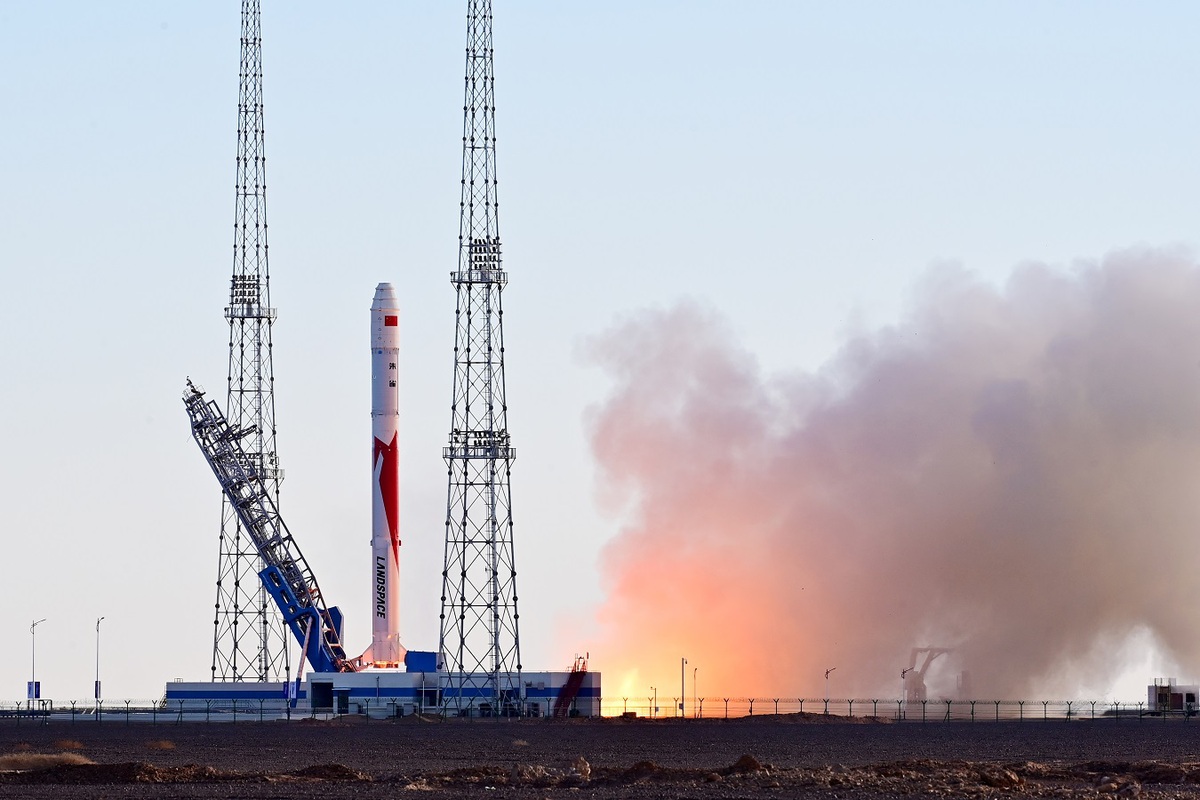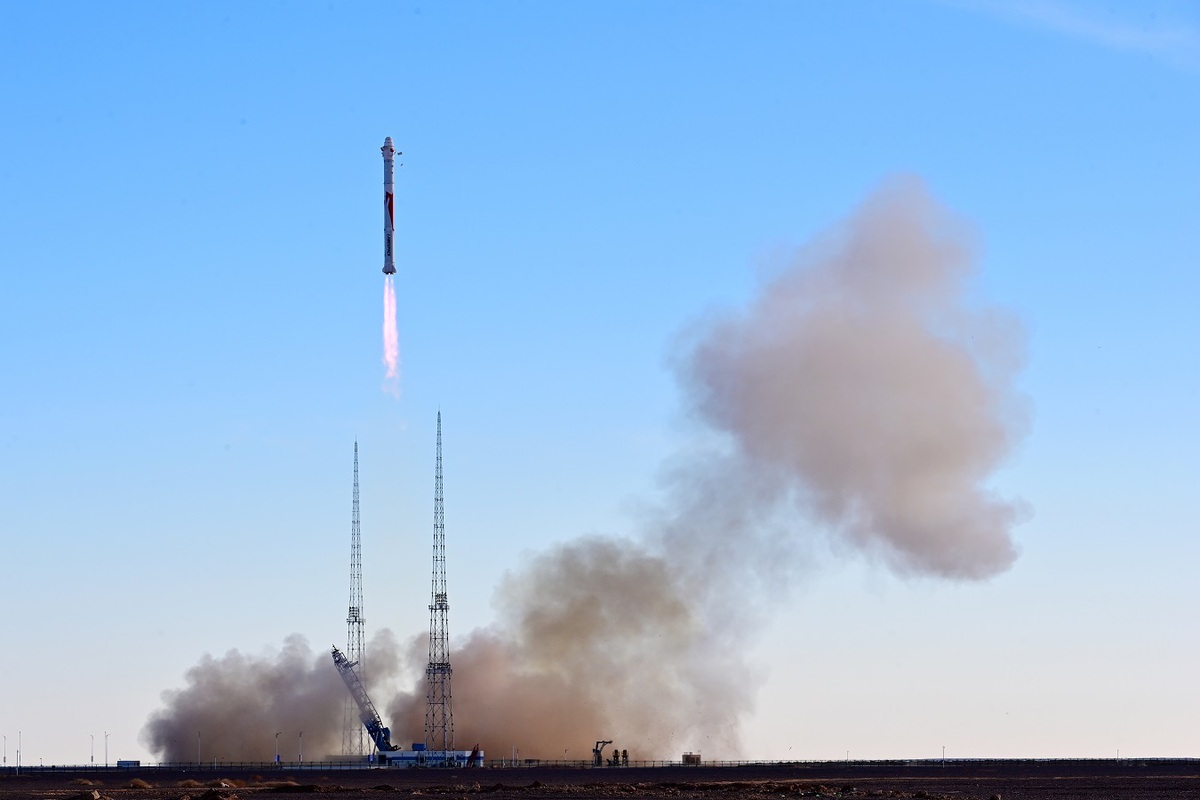
LandSpace, a Beijing-headquartered private enterprise, made the first flight of a modified variant of its ZQ 2 methane-propelled carrier rocket on Wednesday, transporting two satellites into orbit.
The ZQ 2E-Y1 rocket blasted off at 10 am from the Jiuquan Satellite Launch Center in Northwest China, deploying two experimental satellites into their preset orbit, according to a news release from LandSpace.
The Y1 in the rocket's name signifies that the craft is the first in the ZQ 2E series, while ZQ 2 is the world's first methane-fueled rocket type to reach Earth's orbit. The model has flown three times and two of them were successful.
ALSO READ: China prepares to launch Long March-12 Y1 carrier rocket
According to LandSpace, the new variant is 47.3 meters tall and 3.35 meters wide with a liftoff weight of 219 metric tons and a launch thrust of 282 tons.
The ZQ 2E is capable of placing satellites with a combined weight of 4 tons into a typical sun-synchronous orbit about 500 kilometers above the Earth, meaning it has a much bigger carrying capacity than the ZQ 2.

LandSpace makes its rockets and engines at the company's plant in Huzhou, Zhejiang province, the first privately owned carrier rocket factory in China and the largest of its kind in Asia.
The mission marked China's 58th space launch this year.
READ MORE: China launches two new satellites
Separately, China's Lijian-1 Y6 carrier rocket has completed the final assembly test as scheduled in Guangzhou, South China's Guangdong province, according to the rocket's developer CAS Space.
Successfully passing the factory review, the carrier rocket will be launched carrying 11 satellites in late December this year.
The rocket used a self-developed initiator for the first time and some other products that effectively reduced the operating cost and shortened the production cycle, said CAS Space. The products are more suitable for the mass production of rockets and the regular operation of launch services.
A 3.35-meter diameter fairing applied on the rocket was riveted, closed, sprayed, and delivered to the final assembly.
With Xinhua inputs


